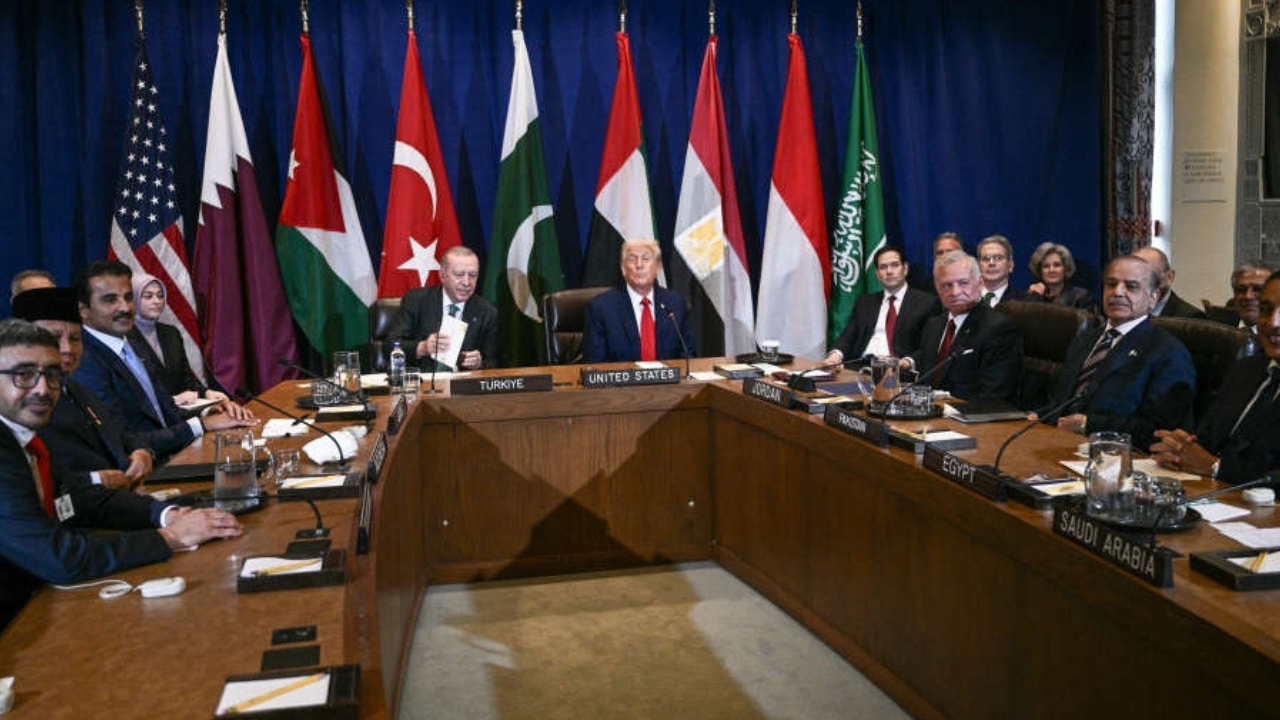
Stay Young and Radiant: 10 Vegetarian Foods That N
Discover the top 10 vegetarian foods to naturally boost collagen and stay young. Learn how plant-bas

Photo:AFP
The war in Gaza has already caused deep suffering, destroyed lives, and shaken the wider Middle East. With no end in sight, Arab leaders are now turning toward former US President Donald Trump, urging him to take a leading role in securing a ceasefire and pushing peace talks forward. Their call came during the high-profile United Nations summit in New York, where the Gaza crisis dominated many discussions.
A Region in Endless Conflict
The Gaza war, which has stretched for months, has left thousands dead and even more injured or displaced. Civilians have borne the brunt, with hospitals running short of medicines and electricity, families living in ruins, and children facing hunger and uncertainty. Arab states argue that the world cannot allow this war to become another endless cycle of violence, and that outside intervention is essential to bring the fighting to an end.
Arab leaders are frustrated with the slow responses from global powers and the repeated failure of international ceasefire attempts. They stress that Trump, given his history in the region and his ability to attract global attention, could make a decisive impact in cutting through the deadlock.
Why Trump?
During his years in office, Trump placed strong focus on the Middle East, brokering the Abraham Accords in 2020, which normalized ties between Israel and several Arab states, including the United Arab Emirates and Bahrain. While those accords did not resolve the Israeli-Palestinian conflict, they showed that new diplomatic approaches were possible.
For Arab leaders, Trump represents a figure with both influence in Israel and credibility among certain Arab states. Unlike other international mediators, who have tried without success, they believe Trump could personally pressure both Israel and Hamas to consider a truce. Some also argue that his leadership style and direct approach could help cut through years of diplomatic language that often delays real results.
Growing Humanitarian Emergency
The war has already displaced hundreds of thousands of people in the Gaza Strip. Families are surviving in shelters without enough clean water or medical aid. Daily bombings have made it difficult for humanitarian convoys to enter. Reports highlight the worsening crisis in refugee camps that are struggling to house the growing number of displaced people.
Arab leaders, at the UN summit, underlined the suffering and reminded nations that beyond politics, human lives are at stake. They warned that if the war drags on, it will only deepen hatred, fuel extremism, and endanger fragile stability in the greater region—from Egypt and Jordan to Lebanon and Syria.
The Global Stakes
Stopping the war in Gaza is not only a concern for Arab countries. European nations are worried about spillover tensions, including increased migration flows of war refugees and possible terror attacks linked to regional anger. The United States, regardless of leadership, faces a global image test: whether it can still play the role of peace broker.
Many diplomats see Trump’s re-entry into global discussions as both unusual and symbolic. His critics remain cautious, arguing that Trump’s polarizing image may complicate peace talks rather than smooth them. Yet, Arab states insist that with the war at a breaking point, all paths must be tried.
A Divided World at the UN
During the summit, divisions were clear. Western allies expressed support for Israel’s security while also voicing concern about the humanitarian toll in Gaza. Arab states, meanwhile, demanded immediate intervention to stop the bombardment and called for efforts to revive peace negotiations that have been stalled for over a decade.
The United Nations, as it has often done in past conflicts, urged restraint but offered little clarity about how an actual breakthrough could happen. Arab leaders pressed Trump directly, hoping his personal contacts could move the process forward faster than the slow machinery of international diplomacy.